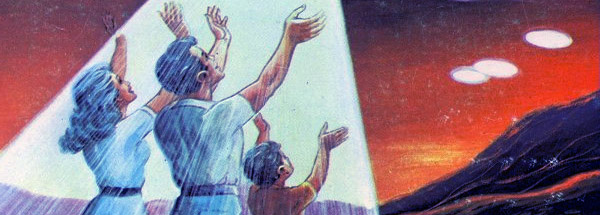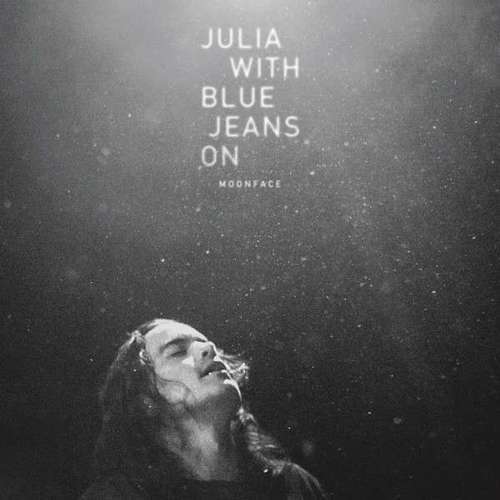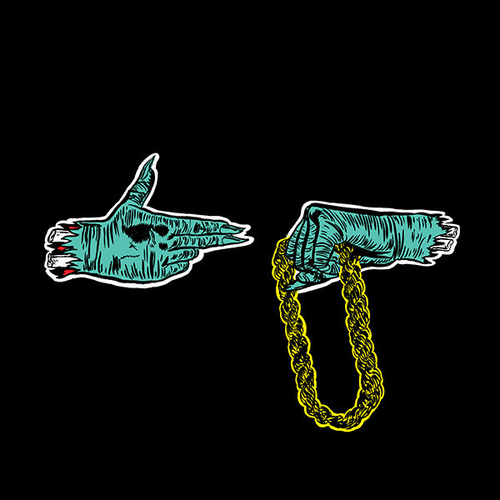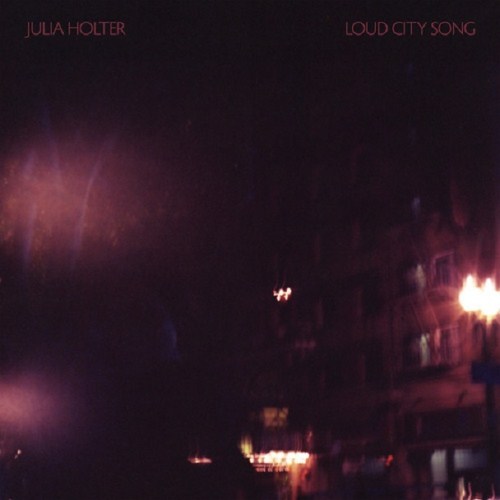
Features | Lists
By The Staff

20 :: Neko Case
The Worse Things Get, the Harder I Fight, the Harder I Fight, the More I Love You
(Anti-)
Neko Case’s brand of heartbreak and anger is a deep one. Not deep as in profound (though it can also be that), but deep as in seeming to possess geographical depth. You can sink into it, let it cover you over. You can indulge in that sadness. Let it unfurl fists and reveal that buried feeling you’re not allowed to show while at the office or while standing in line for scratch tickets. Case’s is a currency of highway-side gas stations and empty calling cards, of airport shuttles, and of lonely late night basements—the interstitial spaces where you can’t help but face yourself.
If Fox Confessor Brings the Flood (2006) remains Case’s most thematically ambitious album, The Worse Things Get… seems like it might be the most accurate distillation of A Neko Case Record. Stepping out from behind characters and metaphors, Case speaks directly to the listener, or to individuals we don’t know but who are clearly real and important in Case’s life. When she sings to the snot-nosed little girl on “Nearly Midnight, Honolulu,” and tells her to never be anything but snot-nosed, you can sense that this is no metaphor. The existence of the little girl and her fraying mother is never in doubt.
The album opens with as devastated a line as one can hear in the context of rock n’ roll’s macho posturing: “When you catch the light / You look like your mother.” It’s simultaneously emasculating and freeing, for in the very next line the maternal figure is a “wild creature,” not the “weak” thing a male listener might cringe to be compared to. In fact, throughout The Worse Things Get…, Case makes clear that she’ll happily be the stand-in for whatever bozo male caricature rock has on offer. For Case to be our modern rock icon doesn’t mean her becoming a sex symbol or to ape masculinity ironically. She needs only to be herself. As she says on “Man,” “I’m a man’s man / Always been / Make no mistake / I’ve invested in / A woman’s heart / It’s the watermark / Of which I measure / Everything,” but then, crucially, “And if I’m dipshit drunk on the pink perfume / I am the man in the fucking moon.”
That’s the kind of line you can feast on, and what makes Neko Case a vital figure in rock music’s fading story arc. Sure, you can go out and invest your time and energy in some stylized authenticity complex—your Black Keys or Jack White, who lament the end of rock from the cover of Rolling Stone—but Case actually personifies the middle finger, the contradiction, the felt sense of anger and regret that sits festering like lifeblood beneath rock music’s skin.
Conrad Amenta

19 :: Julianna Barwick
Nepenthe
(Dead Oceans)
Julianna Barwick’s last record was called The Magic Place (2011). She named this year’s fantasia Nepenthe, but “the magic place” serves as a description of all of Barwick’s music: evocative and richly layered, her songs take the foundational elements of popular music—her ethereal voice most of all, but also a humming piano, or a wash of strings—and inflate them to something stratospherically grand. At the same time, calling Nepenthe a humble record, human to the point where you can almost taste elemental clay in its best moments, wouldn’t be wrong. It’s both heavenly and intimately earthbound, the stuff of angels and of lowly human beings, in all our self-consciousness and confusion and dumb stupid death.
The contributions here by Sigur Rós producer Alex Somers, who recorded Nepenthe in his Reykjavik studios and who helped enlist Múm guitarist Róbert Sturla Reynisson and string quartet amiina to add new textures to Barwick’s songs, give these tracks that familiar Icelandic sweep, a post-rock-goes-to-the-symphony-hall vibrancy. But though a track like “The Harbinger” might call to mind the emotional operatics of Ágætis byrjun (1999) or ( ) (2002), Barwick’s music exists in its own realm, one where she doesn’t cloak these deep feelings in Hopelandic or some other emotive gibberish. Instead, her songs speak a language of their own: one, it turns out, we’ve spoken all along.
► “One Half”
▲ “The Harbinger”
Corey Beasley

18 :: Rhye
Woman
(Republic/Innovative Leisure/Loma Vista)
I’ve played this record, Rhye’s Woman, in a number of situations, all appropriate. For parents whom I’m trying to impress and for parents who impressed upon me the importance of intimacy, making me sleep—when we both go home for Christmas—in a different room from the woman with whom said intimacy is important, because I definitely thought I was in love with her. I’ve played this at dinner parties and on dates, when I dust my apartment and scrape crust off dishes, when I’ve gone to bed alone. Especially when I’ve gone to bed alone.
Woman isn’t really a record meant for going to bed alone; there haven’t been many other records this year that so flawlessly—and instantly, I might add—carried out all plans for being completely and irrefutably sexy. Where tracks like “The Fall” or “Verse” ache and coo and roll over and nuzzle with one another, plying at fat, content lines of sweat striping the bell of a tastefully straddled saxophone, “3 Days” digs in, spurs and all: “It’s just my nature, I ruin love.” Woman’s rhythm is gentle, and its dynamic predictable, and it also sounds pretty much always like Sade, but it’s also kind of perfect, a post-coital mood and a deep longing both satisfied over 45 soft minutes.
Woman, though, isn’t all that much about sex, or at least the having of it. Instead, Rhye is obsessed with remembering sex, and good sex at that, probably, given how much each song pleads for the object of affection to return, to come back, or to join him one last time. It’s a “him” too: lead singer Milosh, which is only worth noting perfunctorily, because-gender bending isn’t much on Rhye’s mind. There are just too many excellent bouts of intercourse to occupy all that brain matter. Even calling the record Woman and adorning the cover with a faceless nude form feel like purely aesthetic choices: objectification, sure, but totally unsure of how anyone could object to the worship of the absolute, imperturbable softness on hand.
It’s probably not too far off to claim that sexual expression has lacked nuance in 2013, at least as far as the pop landscape is concerned. Miley Cyrus was celebrated for her inhibition when all she was doing was getting nakeder and nakeder, thrusting her ass ever further into the public psyche, which, like Robin Thicke’s groin, is now forever at half-chub. R. Kelly got bored pretending he had any class, so he returned to his roots and dropped (his incessant marketing pun, not mine) Black Panties, hating women as fervently as back when 12 Play (1993) first introduced the functional illiterate’s prowess unto the world, but this time by turning them into skin-cellos. The Weeknd somehow commoditized Abel Tesfaye’s proclivity for sexual assault, painting it as the desperate attention-grabbing of a martyr, and we’re fine letting him continue to take up Michael Jackson’s mantle and wear all those sleeveless jean jackets and lose track of the indelible melody that once made all his douchey mishaps tolerable. It’s been a year of sex as aggression—Justin Timberlake’s two-part ode to a lifetime of smooth-ass monogamy seemed almost cute.
Rhye wrote a record that, while still nobly in tune with its carnality, treats the body like an instrument in ways of which R. Kelly could only dream. It can be awfully lonely, wracked as it is with sensations that are bound to be fleeting; it could be played at a wake and a roomful of mourners would half-listen, connecting on some level in their funereal blacks with a groove that speaks more of how much grooving its lost than where it will groove to next. But above all it bears a long-term respect for the glorious human privilege of fucking. Its sexiness abides. Just ask Sting how special that really is.
Dom Sinacola

17 :: A$AP Rocky
Long.Live.A$AP
(A$AP Worldwide/Polo Grounds/RCA)
A$AP Rocky is our current great faceless rapper. This is not the same as being anonymous. He is flow with a high public profile, made of whatever a particular beat demands of him. He is a malleable bonding agent, as good on trap operas with Gunplay as Clams Casino’s bad-trip ballads. This is the only LP with a colossal 2 Chainz hook, a rappity-rap crew track featuring Big KRIT, and a regrettable Skrillex team-up because A$AP is the only rapper who can occupy those various spaces and make them seem not-so-disparate.
Rocky is more like Diplo than any emcee; his strength is curatorial. Through subservience to the aesthetic he’s currently operating within, he makes sense of whatever styles he chooses to appropriate. Answer me this: what kind of rapper is A$AP Rocky? What does he stand for? His genius lies in the impossibility of answering that question in less than a series of pinwheeling paragraphs.
This isn’t a great album. I think I like 2011’s Live.Love.A$AP more and even that tape has a ponderous middle section. But Long.Live feels like a single object with characteristics that exist throughout. This doesn’t seem like an achievement until you run through the tracklisting on this thing. It should be a mess, yet it feels whole. It feels like an A$AP record.
Colin McGowan

16 :: Moonface
Julia With Blue Jeans On
(Jagjaguwar)
One time I wrote a story about an insane boy who lucid dreamed to kill himself every night, until he met a girl who brought him back to life each morning. It was mostly dumb, but dumb, and tender, and saved are the sentiments behind the spirit of Julia With Blue Jeans On. With his fourth album as Moonface, Spencer Krug is the self-proclaimed phoenix who self-immolates, but is somehow saved, every morning, by a girl who he calls out explicitly by name. The only name Krug professes that’s worth singing about.
Except: maybe this is the first time where Spencer Krug has survived the night. Maybe this is the first time he hasn’t been destroyed at all. There isn’t much evidence on hand, only simple lovelorn hymns, banged out on piano, written as if he’s woken up to find he’s still there. After a long journey, after having “chewed through his own muscles,” he’s done everything but sold his soul to make it out of Canada. This is him finally making it, and Spencer Krug sounds tired, even a little surprised, to be there. Or here, at all.
There are certain things you can count on Krug to sound out: beautiful feelings; beautiful hooks; at least one alleviating “la de da de da” that takes a song and holds it aloft like a handful of balloons; a song with a heart-punch hook that burns out too fast (in this case, “Everyone is Noah and Everyone is the Ark”); and a regrettable omission (in this case, an unreleased song that’s being circulated as “Breakwater”) which he points to with huge chasms of silence. In these songs, even moreso than on any other Moonface album, Krug’s softened. He’s slowed—and it’s the first time we’ve heard his voice rendered with such a raw-nerved tenderness. Which is saying a lot for a man with his voice. You can hear the bird beating against the inside of his chest, but the walls keeping it in aren’t the same. And this time there’s a frog in there too.
He seems on the brink of something great, even if it is a one-manned rebirth. You can follow how bowled over he is by it: in the line that keeps recurring—“I asked where you wanted to be buried, and you asked the name of the town where I was born”—the line turned to piano melody, falling behind his lyrics. As Brent Ables mentioned in his review, these are songs of survival, but they’re also coming from a completely unexpected perspective of having survived. Which is maybe something as surprising to us as it is Krug. Because whatever it is he’s survived—and one can venture he is both surviving and saved by the so-called Julia—Julia With Blue Jeans On is a moment where something remarkable is happening to the phoenix—to Krug. The only name worth singing is not “God,” because it’s Julia that’s saved the phoenix and intercepted this cycle—this curse. That she may have also cursed him in the first place is part of what’s so magnificent about the album: it feels like we’ve been listening and praying just as long as he has to hear Spencer Krug saved.
► “Everyone is Noah, Everyone is the Ark”
▲ “Love the House You’re In”
Kaylen Hann

15 :: Run the Jewels
Run the Jewels
(Fool's Gold)
There’s something monstrous about Killer Mike and El-P following up their individual 2012 albums R.A.P. Music and Cancer 4 Cure—two of the best rap albums of that year, according to everyone on the planet—with something so effortlessly, similarly great. You could argue that there are few other rappers this far on top of their game, but if you don’t include Mike and El on your list solely on the basis of unstoppable consistency and insatiable hunger, you’re fucking bonkers. Their greatness is becoming mathematically demonstrable.
This is an album so immediately accessible and airtight that you end up living in it like an obsession. I spent almost a week exclusively with “Sea Legs,” like it was a roommate who’d seen one too many demented things to ever come back completely. This is like the sound of the raving man on the street corner, wearing a sandwich board with biblical quotes on it, or, as Pitchfork’s Nate Patrin put it, “like somebody who’s not sure if he’s the last sane man or the craziest man on earth.”
It’s rare to hear such inexhaustible anger and cynicism, like joy wrapped protectively in pessimism. How do they sustain it? How do they, going back years now, thrive on that sense of indignation? Our world is an ignominious place, and their sarcasm and anger can seem like the only reasonable way to live in it, but you have to go tough, to harden over inside, to stand it.
Here’s the thing that escalates an already impressive run of quality rap into the absurd, the ludicrous, and the nigh-masochistic: Run the Jewels 2 is slated for 2014. Let that sink in. Not just three albums in two years, but three of the best rap albums in years—period—have a follow up on the way. I mean, just give up.
► “Sea Legs”
► “Banana Clipper”
Conrad Amenta

14 :: Braids
Flourish // Perish
(Full Time Hobby/Flemish Eye/Arbutus)
Flourish // Perish blooms and unblooms, the double slash a hint that it isn’t either/or but rather either and or thinking they can transcend the other, overlapping like puzzle pieces still in the box, Venning out like two brightly-colored kiddie pools that share water, though the physics of that metaphor are of course impossible. Then again, so is a hard black orb just floating over water or in a forest like the dust cap of a speaker stuck there because all of nature is about to transmit sound. Like the trees and the ocean became an indie rock band. Like we humans have never understood how waves or branches work anyways, because the music we actually hear is only like 1/273485736294th of the actual music that exists.
Like that double slash, the orb’s just a reflection, a portal; you slide from one side to the other. You squeeze through it and you are always and you are never; your body is split in two, hanging out either side, but of course there are no actual sides because your body is still one whole thing: a perfect sphere, dark and impenetrable on the outside, but inside is a history of natural noise just bouncing around freely. Unchained. Untempered by gravity, though gravity is really killing it on bass, low-ending the whispers of glaciers, Precambrian poetry, and Jurassic scat. Tones of the eons, blooming and unblooming. Which is exactly what the songs of Flourish // Perish sound like: bouncing melodies that eventually succumb to inertia, but that’s okay because other echoes will soon present themselves, so you’re frequently like 6 minutes into a song and out of nowhere there’s this whole other thing that turns out to be the star of the piece and suddenly you’re sitting in so many kiddie pools that you can’t even understand it anymore because you totally never agreed to play Twister in the first place.
This isn’t the first album to sound like a million things at once, like the stereo spectrum was created exactly for this, like Steve Reich happened instead of the Beatles happening and so this is what music is. But Braids don’t make songs so much as arcs that feature insanely excellent drumming, overlapping and extruding hooks and catches, and beginnings and endings that are french kissing in the wings. Twister didn’t even exist a half-century ago; by the time Braids release another album it will have, roughly. You forgot how time works, and Braids made your body move, twist, and contort into a circle while you were rolling your eyes at that lyric about pizza. You still rolled your eyes in a circle, right? The band has braided you.
Mark Abraham

13 :: Yo La Tengo
Fade
(Matador)
When Yo La Tengo’s Fade came out at the very beginning of 2013, I was not in a big hurry to listen to it. “Just another good Yo La Tengo album,” I thought. And I was right, except for the just part. The band’s thirteenth full-length is good, and it is characteristically Yo La Tengo. But Fade stands out as a particularly strong album in a career full of them, and acts as a true showcase for this band’s versatility as they jump from shoegaze-y jams to retro pop numbers to delicate folk ballads. Ira Kaplan, Georgia Hubley, and James McNew seem to have tapped into a new reserve of energy somewhere along the way—they sound here not like the workhorse band they are, but rather like a group of young enthusiastic upstarts. This feeling of freshness is present in Fade’s best songs, like “’Ohm,” “Well You Better,” “Paddle Around,” and the beautiful “I’ll Be Around.” “Ohm,” the record’s seven-minute opening opus, encapsulates the record’s specific charm in the way it never seems to quite settle on a mood, but instead builds and falls naturally, seeming to change with its listener every time it’s played. Like all of Yo La Tengo’s best work, Fade is deceptive in its warmth and looseness. Behind those classic melodies is some seriously sharp songwriting. And so it stands to reason that the one problem with Fade is its name. This is a record that surges, lingers, sticks in your head. And this is a nearly thirty-year-old band that, remarkably, remains as vibrant as ever.
► “Is That Enough”
► “Before We Run”
Maura McAndrew

12 :: Julia Holter
Loud City Song
(Domino)
The most vivid image of Los Angeles that Julia Holter produces is just of the place you’ll find her: “on the fifth floor of the apartment building.” Like a podium for a president, Holter’s room is Loud City Song’s surrogate setting; her balcony is its source of power. It’s where “World” is sung from, a wispy composition with instrumental interactions as minimal as they come, and it splits a line in the sky, between the “heaven” up high—“all the heavens of the world,” as she soon revises—and that shit of an ecosystem on the other side: “the city.”
Loud City Song is written for a crooked and creaking Los Angeles, but from upstairs, Holter makes it sound like any city, an anonymous infrastructure of bridges and buildings, road-works and sidewalks, bars and cafes. It’s wherever you’re from, so long as it’s blocked by a crowd and obscured by fog. It’s Loud because you’ll never understand it. Check how Holter’s droning cover of “Hello Stranger,” an estranged love song in Barbara Lewis’ hands, makes her sound estranged from the city, driving away from it at 5 AM, the violin strings sharp and squinting as if none of these sights will ever be seen again.
Loud City Song is fascinated with city structure, but a city never looks like just one thing, and true to Holter’s perceptive talents, the words we throw at it come out like some sort of infrastructure mixtape: her version of the city sounds claustrophobic, but also ambient, its deceptive orchestral prettiness rife with enough violence to suffocate its listener. Loud City Song is, as a result, jaw-droopingly gorgeous, and also bent the fuck out of shape. “City Appearing” envisions a jazz bar sans-clientele, metamorphosing the sensual “This is a True Heart” into a lightly accentuated, after-midnight piano ballad. “In the Green Wild” rushes to get out of the city, if it can, but of course it can’t; it is too caught up in the city’s sinister bustle to see rural surroundings as anything more than a fantasy.
Holter wrote about Los Angeles as a way of getting at the nature of the celebrity, and also at society’s obsession with stripping them naked. Loud City Song doesn’t pick a winner for its streets, though: it belongs to the unremarkable citizen, their privacy won, and also to the celebrity living at Kanye-levels of paparazzi dissonance. The two come together under sky and skyscrapers, where being a celebrity, according to Holter, is just hyperventilating when you walk past a crowd of people. It’s the feeling that everything is closing in on you. Loud City Song closes in on you the way buildings do: horns surround you, and Holter retreats from her balcony, her narration complete, the city still a mess.
► “Maxim’s I”
► “In the Green Wild”
Robin Smith

11 :: Califone
Stitches
(Dead Oceans)
My favourite example of pop culture-interactive art synergy of the year came by way of the video for the eponymous single from Califone’s Stitches. Culled from a variety of Tumblr pages, the ever-changing video pans across various still images and .gifs: anatomical diagrams, optical illusions, old textbooks, archaic non-sequiturs, archaeological remains, eternally-looping dancers, vaudeville posters, porn, tourist ephemera, washed-out horizons, etc. There’s a kind of mysticism to the video’s aleatoric strategy, curating from pages that are themselves re-posted to so many degrees that their original source may be long lost: “Didn’t we fit together / Like somebody else’s sweater?” Tumblr is symptomatic of a very current state of the vast proliferation of images, but it’s an old, and very Modernist, idea, harkening back to the world of assemblages: of hermetically-sealed, private worlds and obscurities with vast meaning. Nostalgia’s object is always allusive, always seemingly belonging to someone else, and thus part of a continuum with our own world of free-floating signifiers.
When I wrote about Quicksand/Cradlesnakes (2003) for our decade-end list, I mentioned that the fundamental mistake when assessing Califone’s music was to assume they were some kind of 21st-century update of Americana, instead of a retrofitting of technology to the dust of the past. Listening to Stitches I wonder if even that distinction has become too simplistic. Both one of their most compact records, it’s also arguably their least indebted to the canon of middle America, inward-looking in a way that draws far less easier comparisons. It’s finally the record on which those interstitial fragments of sound that always marked their work become the substance, the backbone on which they craft their most immediately satisfying album yet. It also bears the closest they’ve come to a manifesto: “Cut the connection / Just to stitch it together again / Again / Again.”
It may also be the band’s apex lyrically, the point at which their ability to take familiar archetypes and twist them into something warped, bleeding, and quivering with vitality reaches a kind of fever pitch. There’s a loose strategy occasionally employed here where a line full of pastoral beauty is followed by one that’s disturbing or enigmatic (or vice-versa): “We are the speed of clouds passing moonlight / We are a payphone waiting”; “Eyes in the screen / You’re a brain in a jar / I knew how to love / So much better when I was 5.” Biblical figures like Moses, Mary Magdalene, Esau, and Jacob are rendered into lonely wanderers through a desert of surreal and often cruel wordplay. The latter are banished to move backwards through time on “Bells Break Arms,” crawling back inside their mother (and implicitly undoing the proliferation of God’s chosen people). It sounds like heavy-handed stuff, were it not played out like a hymn, Tim Ruttli’s vocals reverberating with an almost vestal purity. Likewise, despite the seemingly irreverent title, “moonbath.brainsalt.a.holy.fool”’s light and shade is the echo of a prayer into silence. Like all mystics, he absorbs the most horrible visions but returns from the other side still whole; or rather, stitched back together.
► “Stitches”
► “Movie Music Kills a Kiss”





